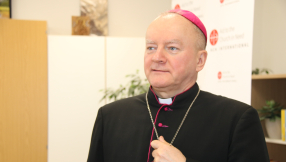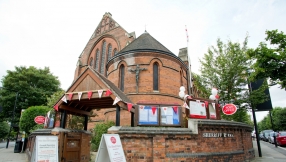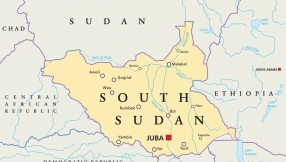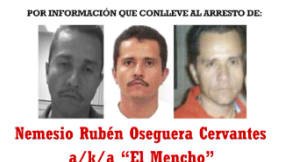America has its new President, but its safe to say America is pretty divided. The vitriol and anger that so defined the presidential campaign has only continued post-election day: some cheer for Trump, while others lambast the half of the country that voted for him as racist and ignorant. Many groups express deep fear of the future, while friends and families find themselves torn apart, with little hope of reconciliation.
The picture is much the same in the church. Although an overwhelming number of white evangelicals voted for Trump, many from other Christian groups did not, particularly those in minority communities. As Emma Green wrote for The Atlantic: "Vote counts conceal deep, painful fractures among the huge, diverse group of Americans who identify as evangelical Christians." As soon as one major evangelical leader endorses Trump, another condemns him.
Christians are used to holding different positions, and 'agreeing to disagree', but the division that has been wrought, or perhaps just revealed, by this presidential election is a huge problem for a church that claims to be one in Jesus. After more than a year of violent politicking, with an uncertain future ahead, what now for the church?
Can it tread the line between passive endorsement and self-righteous fury? Can it heal its own divisions and rediscover its call to be salt and light to a broken world?
Addressing what matters
There is a time be silent, and there is a time to speak. On the issue of race and sexism, this is surely a time for the church to speak. Labelling one voting group as racist or sexist does no good, but addressing the issue of attitudes toward women and minorities can be done well. During his campaign Trump made numerous disparaging comments about minority groups and footage was revealed in which he boasted about sexual assault. Trump's rhetoric, unprecedented for a presidential candidate, was called out by founder and editor of Sojourners Jim Wallis, who insisted that pastors must condemn such attitudes as profoundly anti-gospel. Though many Christians would disavow Trump's language, the fact that they still overwhelmingly supported him is seen by many as a tacit endorsement of his attitude, and reveals the inability of those of the racial majority to understand just how real and serious racism is.
For women, it is much the same: the fact that Christians could so easily forgive Trump for his misogynistic comments was seen as betraying how pervasive sexist double-standards are. Influential Christian writer Beth Moore put it thus:
Debating whether Trump is truly racist or not is now besides the point. The issue is the church, and the fractures that Trump has revealed. True healing cannot mean ignoring issues of race and gender, as if they were somehow tertiary distractions to what it means for human beings to live in society together. As Christians, we are defined ultimately by identity in Christ, but that doesn't somehow override other essential aspects of our humanity, or eradicate the need to discuss our differences.
What's at stake here is the question of whether the church can transcend the predictable and destructive divides that humanity constructs for itself. If it does wish to, it will take time, sacrifice, and much listening. Does the church believe that racial discrimination and violence against women are serious issues, and that when part of the body suffers, that all suffer? If it does, then it needs to talk about it.
Finding peace beyond politics
To be fully human however, Christians must also learn about when not to speak, or when to at least attempt calm, to lay down our weapons and remember that politics – though important – was never meant to consume our lives.
Comedian and Catholic TV personality Stephen Colbert made this point when he signed off his election night coverage as the final results came in. He suggested that the intense, mutual fear and disdain that so many have of those from the opposite side, has come because we "overdosed" on politics, and it became poisonous.
He said: "I think the people who designed our democracy didn't want us in it all the time. Informed? Yes. Politicking all the time? I don't think so. Not divided that way... now politics is everywhere."
The church would do well to heed Colbert's wisdom. We must never simply withdraw from politics because it can be difficult and people disagree. But we don't have to buy into the 24/7 "politicking" either. Perhaps some of us need to take some time away from Facebook, Twitter, or any social-political platform that has the danger of consuming us. If we can learn to step away from argument and anger then we can remind ourselves of the truth that the world does not depend on us. We do not need to talk all the time.
Consider Paul's advice to the church in Rome: "If it is possible, as far as it depends on you, live at peace with everyone." (Romans 12:18) Following that call may mean giving up on some of our battles, knowing when to let go, or even accepting that we might be wrong. How else can the church minister peace to a world at war?
Knowing when to speak up and when to speak less isn't easy, it requires wisdom and thoughtful judgement. Some of us need to remember that being a follower of Jesus means we need to clearly, publicly address some issues, especially within the church. For others, for our own good and out of love for others, we may need to take some time away from the political fray.
Jesus was full of grace and truth. As his followers, and for the sake of the world, can the church seek to be the same?













